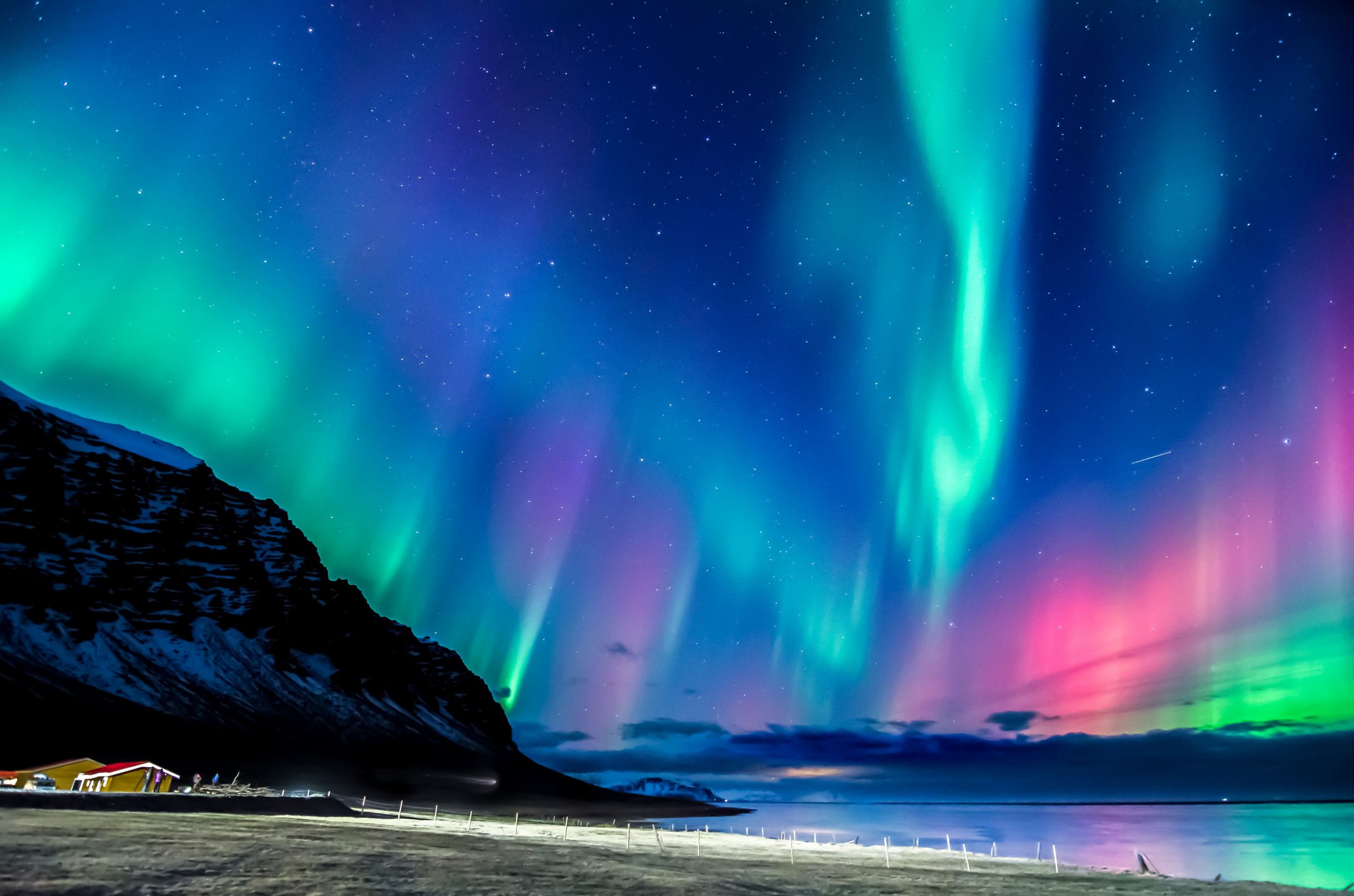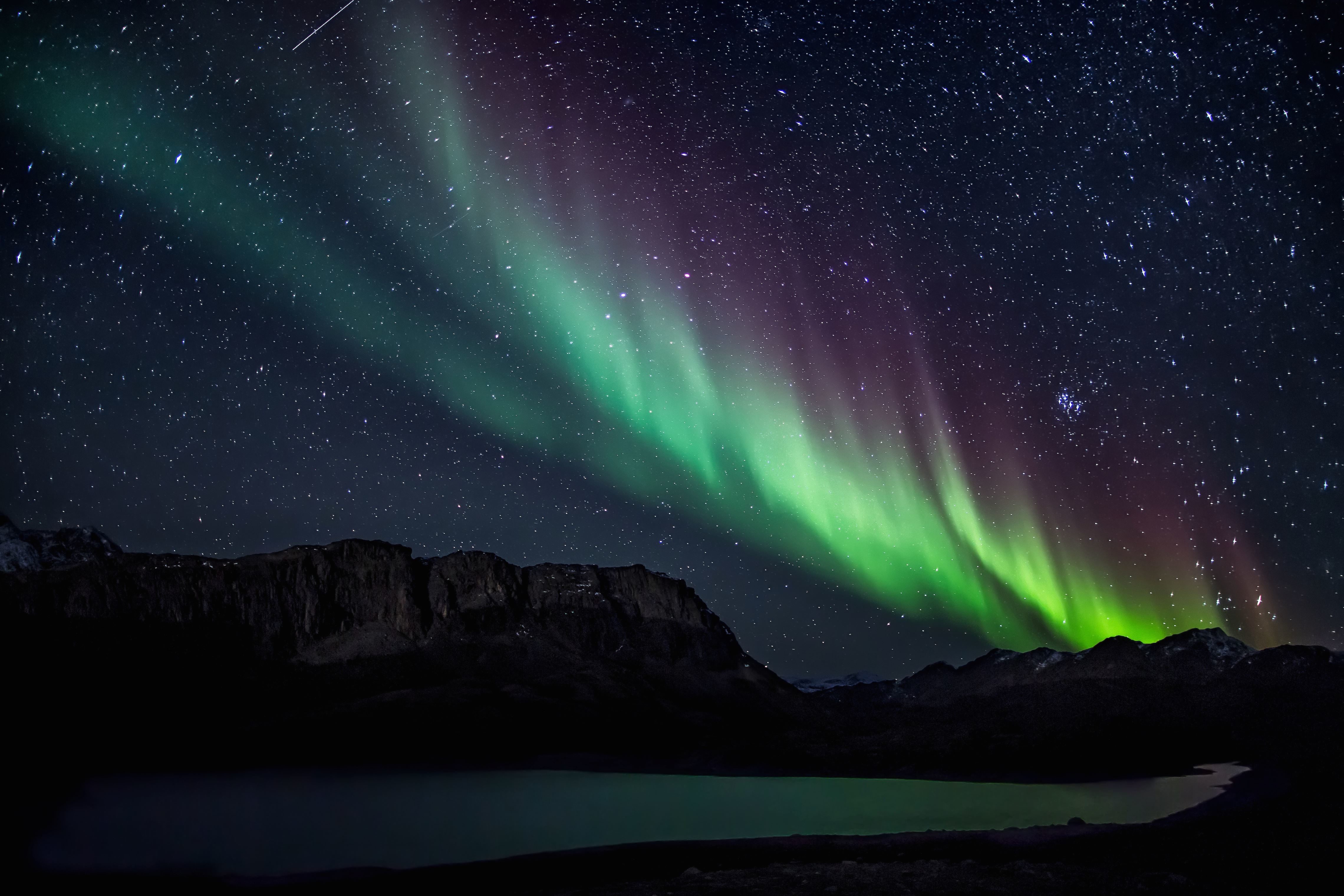Have you seen the magical dance of lights in the night sky? The Aurora Borealis, also known as the Northern Lights, is a natural phenomenon that has mesmerized people for centuries. Whether you’re a seasoned traveler or a dreamer, the Aurora Borealis is an experience that will leave you breathless.
Unveiling the Mystery of the Aurora Borealis
The Aurora Borealis is caused by the interaction of charged particles from the sun with the Earth’s magnetic field. These particles, called solar wind, enter the Earth’s atmosphere and collide with atoms and molecules. The collision excites the atoms, causing them to release energy in the form of light. The color of the light depends on the type of atom or molecule that is excited.
Witnessing the Celestial Symphony
The Aurora Borealis is a truly captivating sight. It can appear in a variety of shapes and colors, from shimmering curtains to vibrant ribbons. The intensity of the lights can vary from a faint glow to a brilliant blaze that fills the entire sky. To experience the Aurora Borealis, you’ll need to venture to the high-latitude regions of the Northern Hemisphere, such as Alaska, Canada, and Scandinavia.

AURORA BOREAL ¿Dónde verla? ¿Cuándo verla? Toda la información sobre – Source www.mochilerosviajeros.com
Legends and Folklore of the Aurora Borealis
Throughout history, different cultures have had their own beliefs and legends about the Aurora Borealis. The Vikings believed that the lights were a bridge to the realm of the gods. The Inuit people thought they were the spirits of their ancestors dancing in the sky. And the Native American Cree people believed that the lights were a sign of good fortune.

Las mejores fotos de auroras boreales de 2021 – Source www.nationalgeographic.com.es
Unveiling the Scientific Marvel
While the Aurora Borealis may appear magical, it is rooted in scientific principles. The lights are caused by the interaction of charged particles from the sun with the Earth’s magnetic field. These particles, called solar wind, enter the Earth’s atmosphere and collide with atoms and molecules. The collision excites the atoms, causing them to release energy in the form of light. The color of the light depends on the type of atom or molecule that is excited.

Oso polar en el frío fenómeno de la aurora boreal del cielo generador – Source www.freepik.es
Travel and Tips for Aurora Borealis Hunting
If you’re planning to chase the Aurora Borealis, there are a few things you need to know. First, you’ll need to travel to a high-latitude region of the Northern Hemisphere. Some of the best places to see the Aurora Borealis include Alaska, Canada, and Scandinavia. Second, you’ll need to find a place with clear skies and minimal light pollution. This means getting away from city lights and finding a dark, open area with a clear view of the sky.

Aurora boreal, fenómeno de la aurora boreal | Foto Premium – Source www.freepik.es
Aurora Borealis Photography
Capturing the Aurora Borealis on camera can be a challenging but rewarding experience. Here are a few tips for getting great shots:
- Use a camera with manual settings.
- Set the ISO to a high value (800 or higher).
- Use a wide-angle lens (14mm or wider).
- Set the aperture to f/2.8 or wider.
- Set the shutter speed to 15 seconds or longer.

Where Can the Northern Lights Be Seen in Sweden? | Norway nature – Source www.pinterest.co.uk
Aurora Borealis Northern Lights
The Northern Lights are a beautiful and awe-inspiring sight. They are caused by charged particles from the sun interacting with the Earth’s magnetic field. The lights can be seen in the sky at high latitudes, such as Alaska, Canada, and Scandinavia. The best time to see the Northern Lights is during the winter months, when there is less daylight.

Fotos gratis : paisaje, naturaleza, Oceano, nieve, atmósfera, glaciar – Source pxhere.com
Fun Facts and Myths about the Aurora Borealis
Here are some fun facts and myths about the Aurora Borealis:
- The Aurora Borealis is named after the Roman goddess of dawn, Aurora, and the Greek word for north, Boreas.
- The Aurora Borealis can be seen in both the Northern and Southern Hemispheres. The Northern Lights are called the Aurora Borealis, and the Southern Lights are called the Aurora Australis.
- The Aurora Borealis is a magnetic phenomenon, so it can be affected by solar activity.
- The Aurora Borealis can be seen in a variety of colors, including green, red, blue, and purple.
- The Aurora Borealis can be heard as well as seen. Some people report hearing a crackling or hissing sound when the lights are active.

Planete Terre Aurore Boreale Image Animated Gif | My XXX Hot Girl – Source www.myxxgirl.com
How to View the Aurora Borealis
If you are interested in seeing the Aurora Borealis, there are a few things you can do to increase your chances of success:
- Travel to a high-latitude region of the Northern Hemisphere.
- Find a place with clear skies and minimal light pollution.
- Be patient. The Aurora Borealis is a natural phenomenon, and it can be difficult to predict when it will appear.
- Don’t give up. If you don’t see the Aurora Borealis on your first night, try again the next night.

Dominante Decepción León cuales son las auroras boreales Motear Bienes – Source www.maisoncapitol.ch
What Causes the Aurora Borealis?
The Aurora Borealis is caused by the interaction of charged particles from the solar wind with the Earth’s magnetic field. These particles, called solar wind, enter the Earth’s atmosphere and collide with atoms and molecules. The collision excites the atoms and molecules, causing them to release energy in the form of light. The color of the light depends on the type of atom or molecule that is excited.

Simulación de una aurora boreal, con imágenes reales del fenómeno – Source www.dicyt.com
What if You Miss the Aurora Borealis?
If you’re traveling to a high-latitude region in hopes of seeing the Aurora Borealis, but you don’t see it, there are a few things you can do:
- Check the aurora forecast. There are several websites and apps that provide aurora forecasts.
- Try again the next night. The Aurora Borealis is a natural phenomenon, and it can be difficult to predict when it will appear.
- Be patient. Sometimes, you have to be patient to see the Aurora Borealis.
Listicle of Aurora Borealis Tips
Here are a few tips for aurora borealis viewing:
- Go during the winter months.
- Travel to a high-latitude region.
- Find a place with clear skies and minimal light pollution.
- Be patient.
- Don’t give up.
Questions and Answers about Aurora Borealis
Q: What causes the Aurora Borealis?
A: The Aurora Borealis is caused by the interaction of charged particles from the solar wind with the Earth’s magnetic field.
Q: What are the best places to see the Aurora Borealis?
A: The best places to see the Aurora Borealis are high-latitude regions of the Northern Hemisphere, such as Alaska, Canada, and Scandinavia.
Q: What is the best time to see the Aurora Borealis?
A: The best time to see the Aurora Borealis is during the winter months, when there is less daylight.
Q: How long does the Aurora Borealis last?
A: The Aurora Borealis can last anywhere from a few minutes to several hours.
Conclusion of Aurora Boreal: Fenómeno Luminoso Del Cielo Nocturno
The Aurora Borealis is a truly captivating natural phenomenon that has been inspiring awe and wonder for centuries. Whether you’re a seasoned traveler or a dreamer, the Aurora Borealis is an experience that will leave you breathless. So if you’re ever lucky enough to witness this celestial symphony, be sure to cherish the moment.